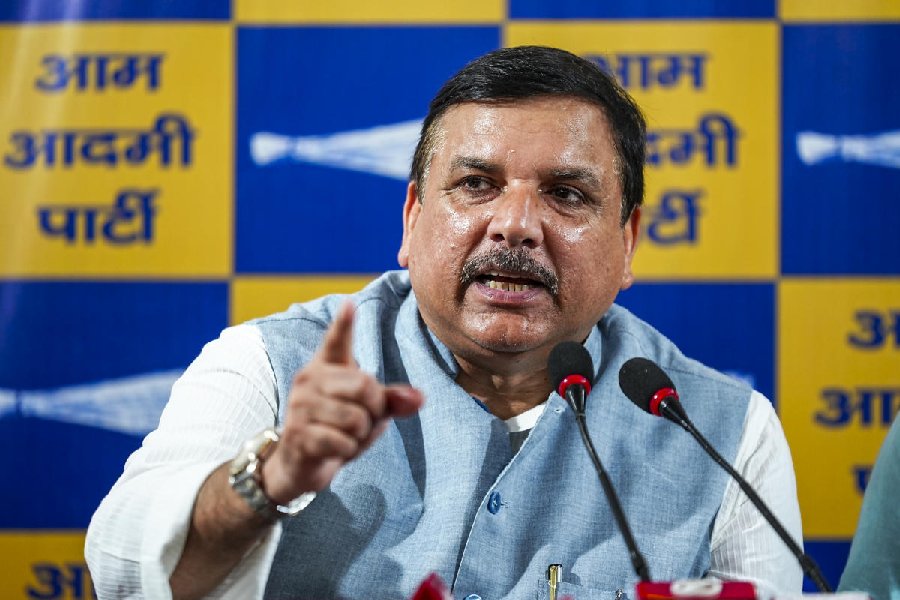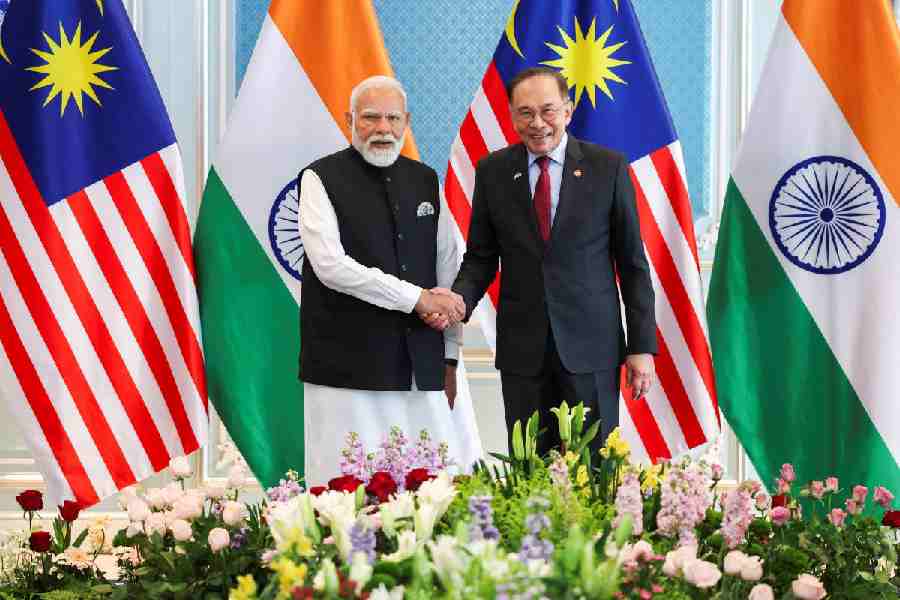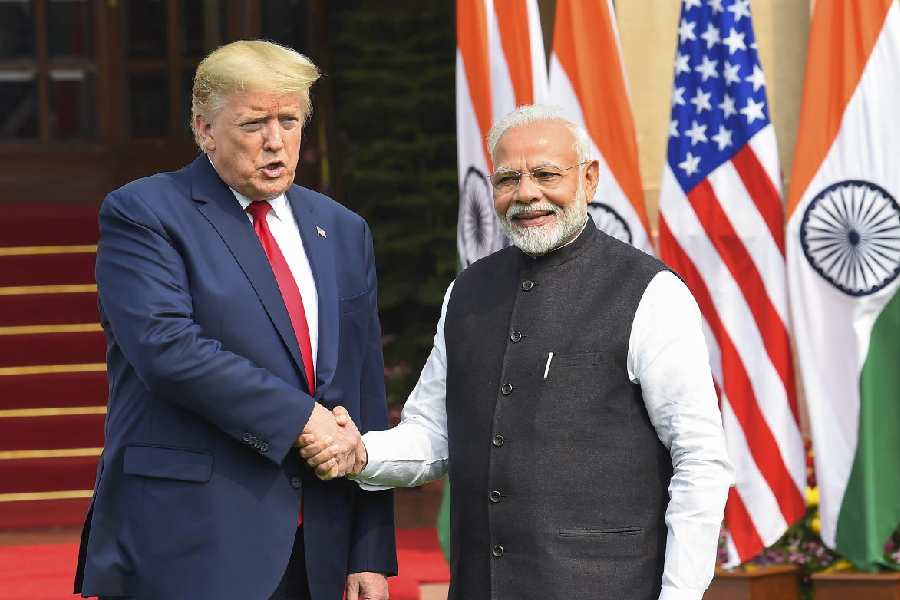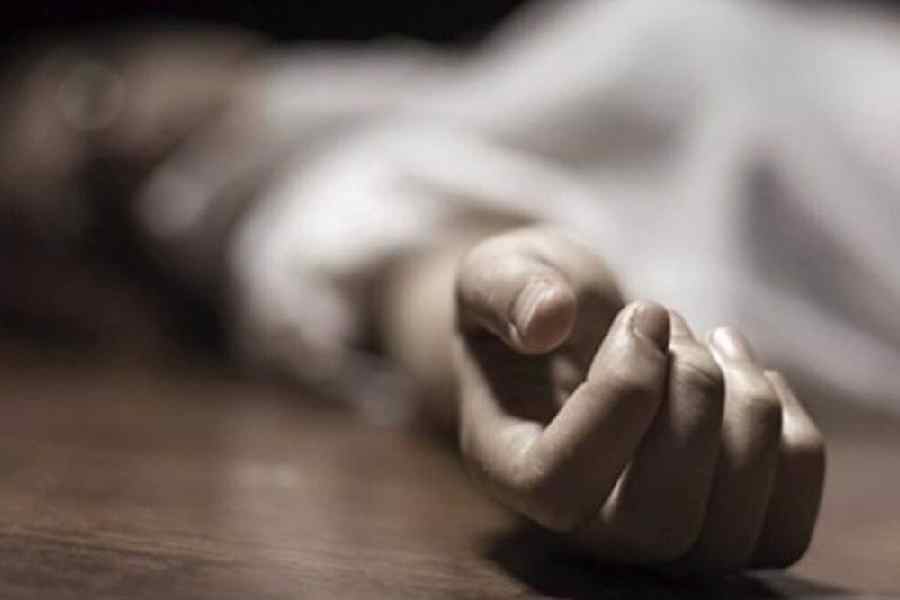
Bengal is a police raj where the police when required are non-existent. This paradox demands some explication. Let us begin with the first part of the paradox.
Where else but in a police raj would you find a former very senior police officer put in charge of an academy devoted to the cultivation of the fine arts? The consequences of such a decision are not difficult to predict. Its first victim is the freedom of artists, which is at the heart of any process of creativity. Outside of totalitarian regimes, it is difficult to find an example that is even remotely parallel to this bizarre situation where a police officer runs an institution that is the home of artists. No surprises, therefore, that the police descended on the Academy of Fine Arts in Calcutta to stop a video being shown on the aftermath of the collapse of the Vivekananda Road flyover. This, of course, is not the first time that the police force in the regime of Mamata Banerjee has used its heavy hand to stop the free expression of views and of speech. In a police raj this is exactly how the police act.
It is almost axiomatic that the majority of cases involving the violation of human rights are against the police or some other law and order enforcing agency. It is against the actions of such agencies, especially the police, that the common people, who are the victims, turn, in need, to the human rights commission. In Mamata Banerjee's Bengal, who heads the state human rights commission? If you have answered the query with the words, "an ex police officer", then your answer is correct. But please don't ask how a former police officer will take an unbiased view of cases against members of the police force. That question is too clever and might even be deemed to be a criticism of the way the chief minister rules the state, and therefore the question is liable to be suppressed.
A police raj is where the police act not according to the rule of law or to maintain the laws of the land but according to the whims and diktats of the political leader. A police raj is where the police are not only the punitive arm of the State but also the punitive arm and the extension of the ego of a megalomaniacal leader.
Attention can now be devoted to the second part of the paradox put forward in the first paragraph. There are individuals in Bengal stomping around the districts, the small towns and even in Calcutta who boast that they have committed murders. But have the police moved against them? If the police had, then those individuals would not be seen or heard in public. There is a member of Parliament of the ruling party who threatened that families who opposed the Trinamul Congress would have their womenfolk raped by Trinamul cadre. He remains free and no one has tried to suppress his freedom of speech, however vulgar and obnoxious his words may have been.
Police in the police raj are invisible when the perpetrators of crimes and purveyors of threats are from the Trinamul Congress. Such is the "independence" of the police in this police raj that a commissioner of police of Calcutta could not be trusted by the Election Commission to ensure free and fair elections. He had to be summarily removed. Is anyone ashamed of this in the police raj? The answer, as the words of the song says, is blowing in the wind.
Someone very wise once said that it was possible to see a world in a grain of sand. Following that, one could say that it is possible to see Bengal today through the prism of paradoxes. Bengal today is a state where misrule prevails in the name of rule; a state where lawlessness prevails under lawmakers and law enforcers; a state where the freedom of a leader's whim and power is used to restrict and shackle the freedom of others. Bengal is a state where the only legacy the exercise of political power bequeaths is a receipt for deceit.
Bengal is an obvious place for disaffection. But Bengal is a place where many, among them the educated, refuse to acknowledge the arrogance of power when it stares at them in the face; a place where many continue to repose their trust in a leader who has abused hope.
The question at some time or the other has to be posed: does Bengal quite deserve the leader it has currently got? In the persona of Mamata Banerjee the ghost of Bengal's past has come to haunt the people of the state. Bengal and Bengalis love their icons. Yet, Rammohun Roy was vilified in his lifetime. Bengal and Bengalis love their icons, and Vidyasagar had to walk the streets of Calcutta with bodyguards lest he be manhandled. Bengal and Bengalis love their icons, but a future generation of young men decapitated the statues of Rammohun and Vidyasagar. History somewhere and at some point of time is bound to demand a repayment for these sins. Mamata Banerjee is that repayment: a Bengali who has left no room for Bengalis to hide their collective shame.
She may win or lose the elections, but nothing will remove the stain she has spread on the honour of Bengal. She has moved from wrong to wrong. She has made policemen stand at the gateway of culture and freedom. The people of Bengal have lost their dignity and their pride.
"They showcaused me on the first day of the year. I said the right thing. I will say it again, I will say it a thousand times, a lakh times." Thus thundered Mamata Banerjee. The object of her wrath was none other than the Election Commission. Hence a parting paradox: a chief minister of a state seeking re-election but openly defying the Election Commission, the institution entrusted with the job of overseeing that the norms of democracy are maintained during elections. An elected leader who mistrusts the Election Commission, perhaps even - who knows? - the very process of election. After all, as a democratically elected chief minister, she has set up a police raj.
The people of Bengal need to decide if they want to live again under the shadow of such a paradox. They must decide if they want to live under a leader who promised change but brought change for the worse.
The people of Bengal love icons but they can also remove them.











